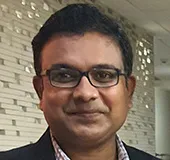-
CENTRES
Progammes & Centres
Location
With India looking forward to its G20 presidency in 2023, it becomes a vital actor in pushing international health reforms

Historically, public health concerns have invited political actions by the state. While progress in the medical sciences is an essential factor to tackle health concerns, the state acts as a facilitator for it and is also responsible for the medical infrastructure, control and monitoring at the borders, and maintaining harmony among its citizens. Since the 20th century, the world has become more interconnected with technological enhancement and increased movement of goods, services, and people. While predominantly affecting the economic and political domain of the country, globalisation’s influence on the global governance of health has been significant. The movement of people meant that countries were more exposed to public health threats and vulnerabilities than before. This called for a coordinated and collective response mechanism to be set for any future transnational public health concerns. The World Health Organisation (WHO), that was established in 1948, became one of the important platforms for countries to discuss and deliberate concerns regarding their citizens’ health. One of the vital outcomes of these discussions was the formulation of the International Health Regulations (IHR) that are in effect to date.
The IHR have been an essential part of the response to international public health concerns since 1969. The World Health Assembly introduced it to tackle health security concerns such as cholera, plague, yellow fever, smallpox, relapsing fever, and typhus. However, the regulations were amended in 1973, 1981, 1995, and finally, in 2005 with the emergence and re-emergence of the international spread of diseases. Over the years, humanity has faced numerous transnational health concerns such as the 2009 H1N1 pandemic influenza, the 2014 wild poliovirus and Ebola virus, and the most recent COVID-19 and Monkeypox.
The recent COVID-19 pandemic highlighted the need to reform international organisations and the regulations concerned with the world population's health.
While the mechanisms to tackle such health concerns are considered to be in place for several years, international organisations have been often caught off-guard in their preparation to confront such challenges. The recent COVID-19 pandemic highlighted the need to reform international organisations and the regulations concerned with the world population's health. However, it is important to note that these organisations and regulations do not function in silos, but in a dynamic and volatile geopolitical environment. COVID-19 brought increased exploitation by authoritarian leaders, where China’s use of pervasive surveillance techniques, and the Russian government’s stopping of protests against Putin’s plans to increase the limits of his presidency had questionable human rights concerns.
The geopolitics of the pandemic have also created problems in international health cooperation, with the United States and China being the main players in the game of balance of power. The effects of the existing trade war between the US and China and former president Trump’s radical policy decision to halt WHO funding saw the US demand to investigate China’s manoeuvring of WHO and violation of the IHR (2005), in addition to ceasing funds and leaving the WHO. The Russia-Ukraine war has also created tensions in international health cooperation where countries used vaccines as a diplomatic tool to influence others’ decisions, as in the case of Lithuania and Bangladesh. The IHR and WHO have also been a witness to the China-Taiwan conflict where Taiwan’s geopolitical ambitions—reflected in its participation on an international stage like the WHO—has been a struggle, even though Taiwan’s has been one of the best public health responses during the COVID-19 pandemic. Thus, as health is a political concern, both at the national and international level, introspection of the geopolitical environment in which these international organisations and regulations function becomes imperative.
The IHR came into the world when convergence in action was the need of the hour. A collective action fostered interdependence of resources, and the flow of capital and finance between countries to address the specific public health challenges they faced. However, as the years passed by, this state of strategic alignment between countries and the perception of globalisation and cosmopolitanism has changed across the globe. Most of the state actors, especially the ones who had promoted the benefits of an open economy and boosting trade, now wave the flag of nationalism coupled with populism. With countries functioning with a realpolitik approach of short-term economic self-interest-driven political agenda, international organisations and regulations have been increasingly defied and challenged. The recent COVID-19 pandemic also spread the wave of ‘strategic autonomy’ in health, i.e., the capacity of a country to act independently, solely guided by its national interests, irrespective of the reaction by other governments to its stance. Thus, the shift in paradigm to approach international health concerns from strategic alignment to strategic autonomy in the era of increased nationalism and populism and geopolitical tensions make it imperative for IHR reforms in addressing humanitarian and epidemiological issues.
Most of the state actors, especially the ones who had promoted the benefits of an open economy and boosting trade, now wave the flag of nationalism coupled with populism.
The shift in the political environment has been fuelled by increasing dissatisfaction with globalisation and its outcomes like international organisations and regulations. The lack of effectiveness in addressing and curbing problems has increased people’s scepticism over the functioning of the WHO and the IHR. According to the IHR (2005), nations need to notify the WHO of any incidents that could constitute a public health emergency of international concern and respond to requests for verifying information about these events. However, due to the differences in socioeconomic, demography, and health levels between member states, lack of textual clarity and political will have been a major concern for the implementation of IHR. Only 42 (22 percent) of the 192 WHO member states met the core capacity requirements before the original deadline in June 2012. While there has been some progress in terms of establishing a national focal point to communicate with all pertinent government agencies, all national stakeholders, and the WHO, and there has been increased transparency in reporting events, 127 of the 192 nations had not complied with all of the IHR (2005) core capacity standards as of the end of 2015. Thus, in addition to the shift in the geopolitical environment that was highlighted previously, it becomes important for IHR reforms to be more inclusive and equitable.
As the need for reforms in IHR and its implementation has been recognised, the means to achieve it needs to be explored. Being a crisis-solving group, the G20 must live up to its legacy and provide the directions to resolve global health governance issues. With India looking forward to its G20 presidency in 2023, it becomes a vital actor in pushing international health reforms. While India is ranked in the top 49 out of 192 countries in IHR reporting compliance and disaster risk reduction according to the 2021 Global Health Security Index, it is its low-cost skilled human resource and well-established manufacturing base that makes it a key player in the discussion of drug security and health diplomacy. India is also an ideal candidate for pushing reforms in IHR due to its geopolitical stance and approach of multi-alignment, which involves “strategic hedging while interacting with all the major powers in order to maintain the balance of power in its favour”. As an economically developing and geopolitically multi-aligned country, the G20 presidency is an optimal position for India to leverage and push towards more equitable IHR reforms.
Being a crisis-solving group, the G20 must live up to its legacy and provide the directions to resolve global health governance issues.
India’s pursuit of reforming international organisations and regulations intensified in December 2020, when it formally conveyed a nine-point plan for WHO reforms for improving the organisation’s functioning, financing, transparency, accountability, and “ensuring fair, affordable and equitable access to COVID-19 vaccines”. Among the nine-point recommendations, improvement in IHR implementation was one of the essential ones. The Government of India recommends continuing voluntary review of IHR implementation, enhancing international cooperation to provide assistance to developing countries, identifying public health as a global good, and formulating a system for regional declaration of health emergencies. This commitment to participate in the global governance of health and IHR reforms has made its impact as the statements from the 13th IHR Emergency Committee meeting aligns with the recommendations provided by the Indian government. The 75th World Health Assembly held in Geneva also recognised the need for amendments in IHR and called for proposals to the State Parties of IHR (2005). As the IHR reforms are awaited by January 2023, India needs to formulate an action plan in navigating through the existing geopolitical conflicts among the G20 members, while involving itself and other countries to create a robust mechanism in preventing future pandemics.
The views expressed above belong to the author(s). ORF research and analyses now available on Telegram! Click here to access our curated content — blogs, longforms and interviews.

Aniruddha Inamdar is a Research Fellow at the Centre for Health Diplomacy, Department of Global Health Governance, Prasanna School of Public Health, Manipal Academy of ...
Read More +
Prof. Dr.Helmut Brand is the founding director of Prasanna School of Public Health Manipal Academy of Higher Education (MAHE) Manipal Karnataka India. He is alsoJean ...
Read More +
Dr. Rohit Raj is Dentist and Public health professional with expertise in Health Policy. Currently working as a field Investigator at Prasanna School of Public ...
Read More +
Dr. Sanjay Pattanshetty Head of the Department of Global Health Governance and Coordinator of Centre for Health Diplomacy Prasanna School of Public Health Manipal Academy ...
Read More +